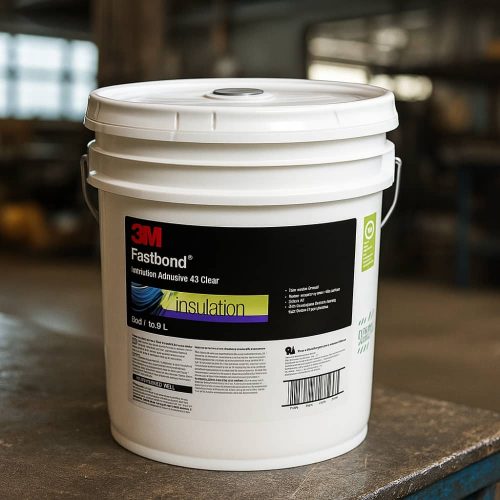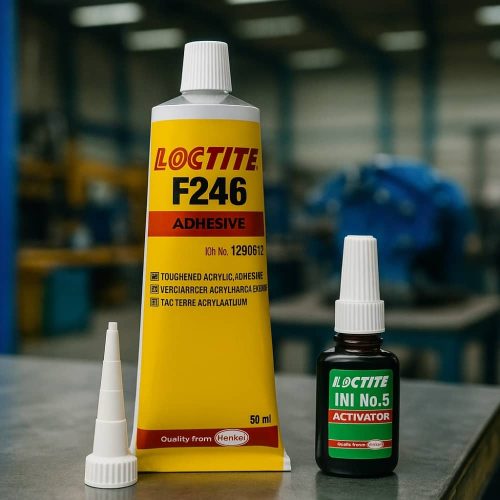La acrylic glue is a two-component or single-component adhesive, renowned for its mechanical, chemical and environmental resistance. It is used in industrial sectors that require durable structural bonds, even under extreme conditions.
It is suitable for assembling metals, engineering plastics, composites and glass. Some versions are formulated for specific applications such as assembling painted or powder-coated parts.


→ Benefit from personalised technical support
A acrylic glue stands out for its high performance and versatility. Here are the main technical features you need to know about:
Depending on the version, it can be used manually or via automatic dosing equipment.
La acrylic pvc adhesive is particularly suitable for structural bonding to rigid plastics. It offers many advantages in production environments:
Ideal for the signage, electronics and technical furniture sectors.
→ Contact our experts to validate your application
The acrylic glues are used in a wide range of sectors requiring reliable, strong assemblies.
→ Save time and optimise your process
At ADDEV Materials, we offer you much more than just a product: we can help you choose and integrate your acrylic adhesive into your industrial processes.
Our added value:
→ Contact us for a quick and accurate recommendation
📞 Our team is here to help you in choosing the right adhesive to meet your objectives: strength, productivity, aesthetics, material compatibility.
Improve efficiency from your initial testing phases with our rapid sampling service.
Acrylic adhesives cure faster, without heat, and are less sensitive to surface preparation.
Yes, some formulations are designed for invisible bonding to PMMA or glass, ideal for design or optics.
It is effective on metals, plastics, composites and glass, and requires no primer on most surfaces.
Observe the temperature conditions and mixing ratio (if two-component) and apply to clean, dry surfaces.
Yes, it is resistant to UV rays, humidity, temperature variations and mechanical impact, making it ideal for outdoor use.
Yes, some formulations are specifically developed to ensure strong adhesion on rigid or expanded PVC.
Initial hardening takes between 5 and 20 minutes, depending on the formula. Maximum strength is reached in 24 to 48 hours.